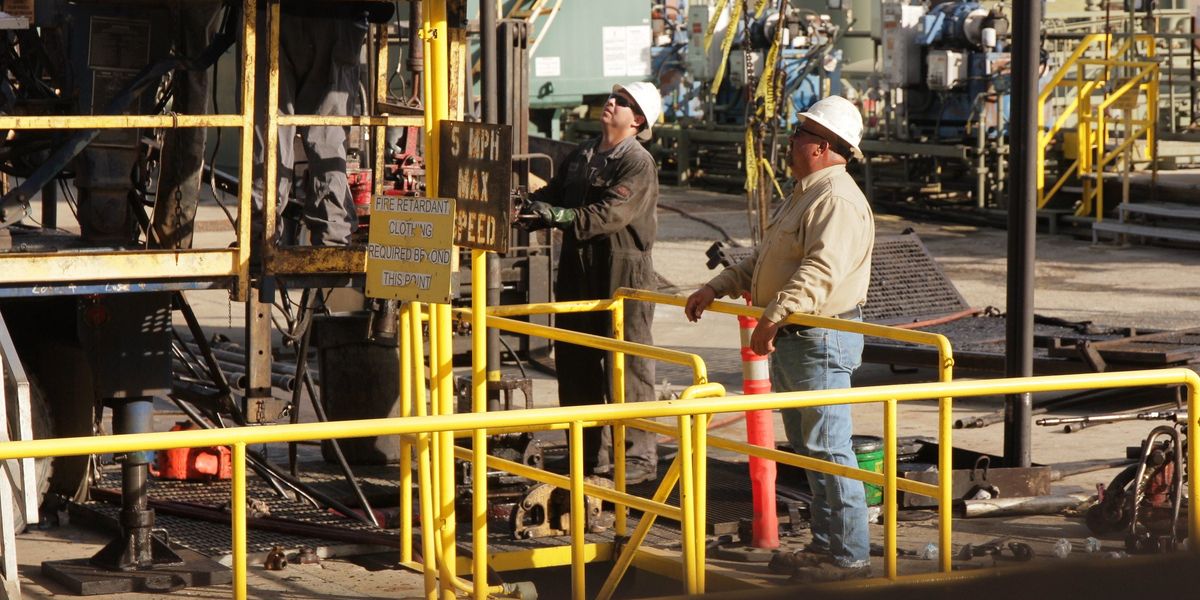
PITTSBURGH — “Forever chemicals” have been used in Pennsylvania fracking wells, but it’s impossible to know how widespread contamination could be, according to a new report.
The report, published today by Physicians for Social Responsibility, an environmental health advocacy group, found eight documented cases of the group of chemicals known as PFAS(per- and polyfluoroalkyl substances) used in unconventional gas wells between 2012 and 2015.
From 2012 to 2022, more than 5,000 wells in the state were injected with around 160 million pounds of undisclosed, “trade-secret” chemicals, which could include PFAS, according to the report, which includes a map of these sites.
“It’s impossible to know how widespread PFAS contamination from oil and gas wells might be at this point,” Dusty Horwitt, co-author of Physicians for Social Responsibility’s reports on PFAS in Pennsylvania, told Environmental Health News (EHN). “We need more transparency before we can begin to address this issue.”
Environmental Health News has previously reported on the use of PFAS at Pennsylvania oil and gas wells, mapping the locations of the eight wells where the chemicals have been used, tracking where waste from those wells has traveled, and documenting a case of PFAS contamination in drinking water at a Pennsylvania home that once had fracking wells on the property.
In Pennsylvania, fracking companies must publicly disclose what chemicals they use, but they’re permitted to withhold “trade secrets.” This exemption is used frequently. “Secret” ingredients were used in more than half of Pennsylvania fracking wells developed between 2013 and 2017, with the most heavy usage of secret chemicals occurring in southwestern Pennsylvania.
PFAS in fracking wells
PFAS are a class of more than 15,000 chemicals with similar properties that are used in a wide variety of household products to make them waterproof, grease-proof or stain resistant. The chemicals don’t break down naturally, so they can build up in the environment and human bodies. Exposure to PFAS is linked to health problems including kidney and testicular cancer, liver and thyroid problems, reproductive problems, lowered vaccine efficacy in children and increased risk of birth defects, among others.
The chemicals, which are extremely water-repellent, are sometimes used in fracking fluid to make the chemical mixture more stable and to more efficiently flush oil and gas out of the ground at high pressure. There’s also evidence that companies use the chemicals during initial drilling and other phases of oil and gas extraction, but since they aren’t required to disclose those chemicals, there’s no way of knowing how widespread the practice is.
Rural water concerns
The new report notes that water wells in rural areas and communities near disposal sites for oil and gas waste may be at high risk of contamination.
Much of the fracking in Pennsylvania takes place in rural communities, where many households use private wells. There are more than one million private water wells in Pennsylvania serving about 3.5 million people in rural areas. Private drinking water wells are not protected by the federal Safe Water Drinking Act and aren’t regulated in most states, including Pennsylvania, so the water isn’t routinely tested or monitored, and the responsibility for cleaning up dangerous chemicals falls to homeowners.
“Considering how toxic and persistent these chemicals are and the evidence that they have been used in oil and gas extraction for decades,” Horwitt said, “it’s critical for state regulators to start looking for these contaminants in people’s drinking water near oil and gas sites.”
Several environmental advocacy groups are calling for a statewide ban on PFAS in Pennsylvania oil and gas operations in response to the new report.
Physicians for Social Responsibility published a similar report on Colorado in January of 2022, which found that PFAS were used in nearly 300 oil and gas wells in the state between 2011 and 2021. That report was influential in state regulators’ decision to ban the use of PFAS in oil and gas wells, making Colorado the first state to pass such a ban.
“PFAS pollution is a serious health concern,” said Alison Steele, executive director of the Environmental Health Project, one of the advocacy groups calling for a ban on PFAS in oil and gas wells, in a statement. “To protect residents from PFAS exposure, the Pennsylvania legislature must pass legislation that restricts the oil and gas industry from using any PFAS pollutants in their operations.”
Editor’s note: An earlier version of this story stated that more than 5,000 wells in the state were injected with around 160 million pounds of undisclosed, “trade-secret” chemicals between 2012 and 2015. Actually, the time period for the injection of the 160 million pounds of trade secret chemicals was 2012 to 2022. The story has been corrected to reflect this.

